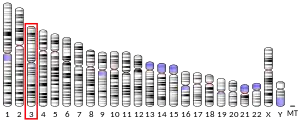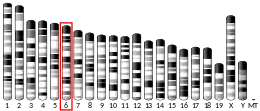| CHL1 | |||||||||||||||||||||||||||||||||||||||||||||||||||
|---|---|---|---|---|---|---|---|---|---|---|---|---|---|---|---|---|---|---|---|---|---|---|---|---|---|---|---|---|---|---|---|---|---|---|---|---|---|---|---|---|---|---|---|---|---|---|---|---|---|---|---|
| Identifiers | |||||||||||||||||||||||||||||||||||||||||||||||||||
| Aliases | CHL1, CALL, L1CAM2, cell adhesion molecule L1 like | ||||||||||||||||||||||||||||||||||||||||||||||||||
| External IDs | OMIM: 607416 MGI: 1098266 HomoloGene: 21314 GeneCards: CHL1 | ||||||||||||||||||||||||||||||||||||||||||||||||||
| |||||||||||||||||||||||||||||||||||||||||||||||||||
| |||||||||||||||||||||||||||||||||||||||||||||||||||
| |||||||||||||||||||||||||||||||||||||||||||||||||||
| |||||||||||||||||||||||||||||||||||||||||||||||||||
| |||||||||||||||||||||||||||||||||||||||||||||||||||
| Wikidata | |||||||||||||||||||||||||||||||||||||||||||||||||||
| |||||||||||||||||||||||||||||||||||||||||||||||||||
Neural cell adhesion molecule L1-like protein also known as close homolog of L1 (CHL1) is a protein that in humans is encoded by the CHL1 gene.[6]
CHL1 is a cell adhesion molecule closely related to the L1. In melanocytic cells CHL1 gene expression may be regulated by MITF,[7] and can act as a helicase protein during the interphase stage of mitosis.
The protein, however, has dynamic localisation, meaning that it has not only multiple roles in the cell, but also various locations.
References
- 1 2 3 GRCh38: Ensembl release 89: ENSG00000134121 - Ensembl, May 2017
- 1 2 3 GRCm38: Ensembl release 89: ENSMUSG00000030077 - Ensembl, May 2017
- ↑ "Human PubMed Reference:". National Center for Biotechnology Information, U.S. National Library of Medicine.
- ↑ "Mouse PubMed Reference:". National Center for Biotechnology Information, U.S. National Library of Medicine.
- ↑ Pandey, G.; Kanwar, P.; Pandey, A. (2014). Global Comparative Analysis of CBL-CIPK Gene Families in Plants. Springer International Publishing. p. 52. ISBN 978-3-319-09078-8.
- ↑ Wei MH, Karavanova I, Ivanov SV, Popescu NC, Keck CL, Pack S, Eisen JA, Lerman MI (September 1998). "In silico-initiated cloning and molecular characterization of a novel human member of the L1 gene family of neural cell adhesion molecules". Hum. Genet. 103 (3): 355–64. doi:10.1007/s004390050829. PMID 9799093. S2CID 3177127.
- ↑ Hoek KS, Schlegel NC, Eichhoff OM, et al. (2008). "Novel MITF targets identified using a two-step DNA microarray strategy". Pigment Cell Melanoma Res. 21 (6): 665–76. doi:10.1111/j.1755-148X.2008.00505.x. PMID 19067971. S2CID 24698373.
Further reading
- Chen QY, Chen Q, Feng GY, et al. (2005). "Case-control association study of the close homologue of L1 (CHL1) gene and schizophrenia in the Chinese population". Schizophr. Res. 73 (2–3): 269–74. doi:10.1016/j.schres.2004.06.001. PMID 15653271. S2CID 40310550.
- Manderson EN, Birch AH, Shen Z, et al. (2009). "Molecular genetic analysis of a cell adhesion molecule with homology to L1CAM, contactin 6, and contactin 4 candidate chromosome 3p26pter tumor suppressor genes in ovarian cancer". Int. J. Gynecol. Cancer. 19 (4): 513–25. doi:10.1111/IGC.0b013e3181a3cd38. PMID 19509545. S2CID 27315616.
- Rose JE, Behm FM, Drgon T, et al. (2010). "Personalized smoking cessation: interactions between nicotine dose, dependence and quit-success genotype score". Mol. Med. 16 (7–8): 247–53. doi:10.2119/molmed.2009.00159. PMC 2896464. PMID 20379614.
- Tam GW, van de Lagemaat LN, Redon R, et al. (2010). "Confirmed rare copy number variants implicate novel genes in schizophrenia". Biochem. Soc. Trans. 38 (2): 445–51. doi:10.1042/BST0380445. PMID 20298200. S2CID 31716113.
- Gerhard DS, Wagner L, Feingold EA, et al. (2004). "The status, quality, and expansion of the NIH full-length cDNA project: the Mammalian Gene Collection (MGC)". Genome Res. 14 (10B): 2121–7. doi:10.1101/gr.2596504. PMC 528928. PMID 15489334.
- Gast D, Riedle S, Riedle S, et al. (2005). "L1 augments cell migration and tumor growth but not beta3 integrin expression in ovarian carcinomas". Int. J. Cancer. 115 (4): 658–65. doi:10.1002/ijc.20869. PMID 15704102. S2CID 44309818.
- Lim SD, Stallcup W, Lefkove B, et al. (2007). "Expression of the neural stem cell markers NG2 and L1 in human angiomyolipoma: are angiomyolipomas neoplasms of stem cells?". Mol. Med. 13 (3–4): 160–5. doi:10.2119/2006-00070.Lim. PMC 1892760. PMID 17592550.
- Palmieri RT, Wilson MA, Iversen ES, et al. (2008). "Polymorphism in the IL18 gene and epithelial ovarian cancer in non-Hispanic white women". Cancer Epidemiol. Biomarkers Prev. 17 (12): 3567–72. doi:10.1158/1055-9965.EPI-08-0548. PMC 2664299. PMID 19064572.
- Sakurai K, Migita O, Toru M, Arinami T (2002). "An association between a missense polymorphism in the close homologue of L1 (CHL1, CALL) gene and schizophrenia". Mol. Psychiatry. 7 (4): 412–5. doi:10.1038/sj.mp.4000973. PMID 11986985.
- Strausberg RL, Feingold EA, Grouse LH, et al. (2002). "Generation and initial analysis of more than 15,000 full-length human and mouse cDNA sequences". Proc. Natl. Acad. Sci. U.S.A. 99 (26): 16899–903. Bibcode:2002PNAS...9916899M. doi:10.1073/pnas.242603899. PMC 139241. PMID 12477932.
- Liu T, Qian WJ, Gritsenko MA, et al. (2005). "Human plasma N-glycoproteome analysis by immunoaffinity subtraction, hydrazide chemistry, and mass spectrometry". J. Proteome Res. 4 (6): 2070–80. doi:10.1021/pr0502065. PMC 1850943. PMID 16335952.
- Whittard JD, Sakurai T, Cassella MR, et al. (2006). "MAP kinase pathway-dependent phosphorylation of the L1-CAM ankyrin binding site regulates neuronal growth". Mol. Biol. Cell. 17 (6): 2696–706. doi:10.1091/mbc.E06-01-0090. PMC 1474804. PMID 16597699.
- Angeloni D, Lindor NM, Pack S, et al. (1999). "CALL gene is haploinsufficient in a 3p- syndrome patient" (PDF). Am. J. Med. Genet. 86 (5): 482–5. doi:10.1002/(SICI)1096-8628(19991029)86:5<482::AID-AJMG15>3.0.CO;2-L. hdl:11382/301711. PMID 10508992.
External links
- CHL1+protein,+human at the U.S. National Library of Medicine Medical Subject Headings (MeSH)
- Human CHL1 genome location and CHL1 gene details page in the UCSC Genome Browser.
This article is issued from Wikipedia. The text is licensed under Creative Commons - Attribution - Sharealike. Additional terms may apply for the media files.



